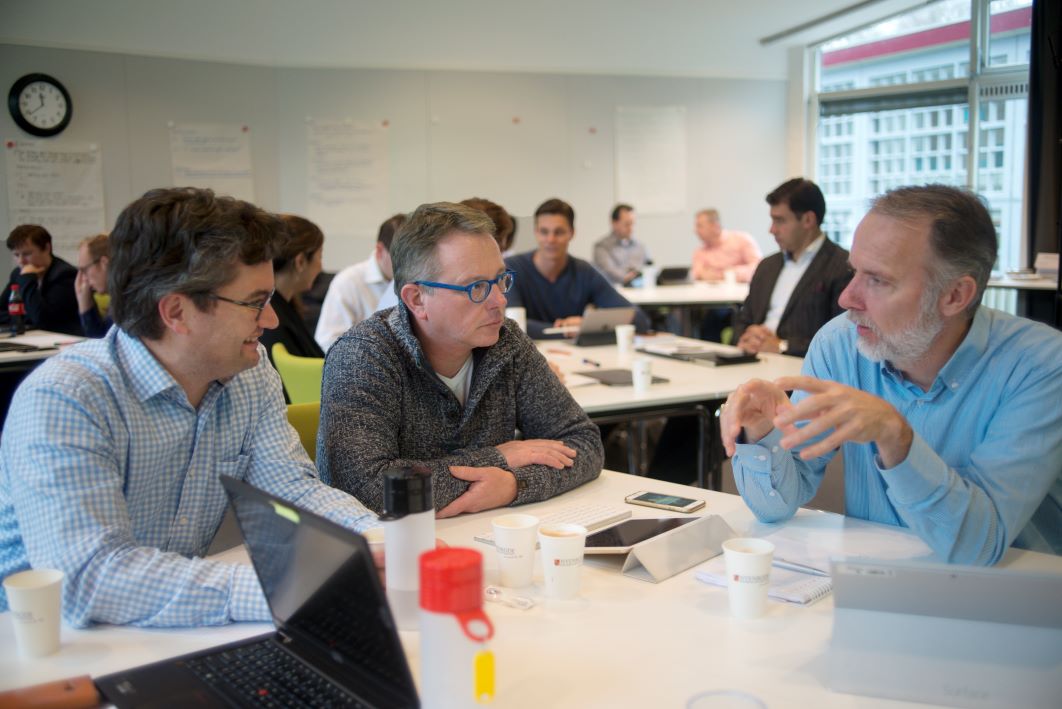In the March 17 article 'Silence and noise during the Corona crisis', Nyenrode gave an overview of spontaneous steps that have been taken to mitigate the effects of the crisis. Experience shows that after a creative phase a structural phase will follow during which the top level of management will lead in solving the crisis.
Our leadership paradigm, strengthened in times of crisis, is that the head of the company has the primacy to make decisions. Given the urgency in those days, the call for strong leadership is loud and decisions can only be taken with incomplete information. This places high demands on organizations and their leaders and the way in which the team is managed and business is conducted is crucial for success.
More Direct and Tighter Navigation
On March 16, 2020, Het Financieele Dagblad published a study on the effect of the 2008 financial crisis on leadership behavior. More than 20,000 executives in 980 organizations from 36 countries were included in the research. The results show that managers became more direct towards their employees, navigated more tightly, making decisions themselves whilst exercising more control. After all, directive leadership decreases ambiguity and uncertainty among employees and provides clear guidelines. The downside is a loss of flexibility and appetite for risk, and therefore creativity.
Slowed down
At this moment we are witnessing beautiful initiatives born of spontaneity throughout the world and in workplaces. The risk of directive leadership is that we kill these initiatives and diminish the energy level of employees within the organization. Executive leadership means that employees are slowed down in the search for new and innovative solutions. Finding (new) solutions to problems requires leaders who want to see opportunities and are open to ideas from others, in other words, participative leadership.
Denial is Deadly
A recent example of a crisis that I have personally experienced was with a large infrastructure project where at a certain point it turned out that a blind spot in the design would cause a huge loss. Revealing this fact would cause serious damage to the company's reputation and its stock market value. The deadly response from top management would be denial (it can't be true, think and fix it) in addition to shoot from the hip advice. Higher management is instructed to deal with the project on a daily basis. The project staff, feeling guilty, ashamed and struggling for a long time to find a solution to the disaster, do not feel taken seriously. They return to the project and staff frustrated and with the message "we must look even further for solutions". The whole project gets completely out of control and fear becomes prevalent. This leads to even greater damage, reinforced by the arrival of senior management, who will "solve" it with very limited substantive knowledge.
Turning Point The turning point comes when top management accepts that there is a big problem and makes this public. The loss is added to the project as an extra budget, so that within a new reality, the project organization can use all their creativity to get the job done. The assistance and direction of higher management is replaced by specialists brought in to strengthen the organization. Communication is not focused on the great mistake that has been made, but instead to the fact that history has been written, which brings back the feeling of pride and confidence.
Motivated Decisions with Incomplete Information In the current the corona virus crisis, we saw our Prime Minister in his recent historic speech addressing the nation doing the right things. He was vulnerable and mentioned that people do not know everything, and that decisions might have been made based on incomplete information. He mentioned various scenarios and substantiated the choice that was made. He gave the experts all the credits as well as the people in the field. In his body language, he emphasized his message by showing himself as a vulnerable leader with compassion.
Tackling the Crisis Which useful lessons can we learn for managing a crisis:
- Lead the process of creativity. Release bureaucratic inhibitory controls by intuitively keeping a finger on the pulse. Organize learning capacity by bringing together thinkers, doers and decision-makers and learn together. Take the lead in determining the topics and explain why you are choosing certain priorities. Keep listening to different ideas or as well as resistance to ideas. This requires empathy.
- Don't downplay the problem and do not show opportunistic behavior. Do not think and communicate with quick fixes.
- If an idea has been worked out well enough: try it despite uncertainty. • Be vulnerable and indicate what you know and what you don't know. Listen carefully to the workplace.
- Watch your attitude and behavior. The entire organization is looking for signals. Closed doors and visits from supervisory directors, bankers and advisers increases fear and breeds uncertainty. Fantasies are usually worse than reality. Communicate about decisions taken with clear rationale and about the process and stages of being.
- Make small successes matter, celebrate them and let the work floor do the talking. Storytelling is very effective, and people can make beautiful footage even with a telephone. • Think in scenarios.
Related programs
-
Cooperation and Leadership
Start date: September 10, 2025Language:- Dutch
Location:- Breukelen
This module is only given in Dutch. Please visit our Dutch site.
View program
-
Global HR Leadership Program
Start date: June 4th 2026Language:- English
Location:- Breukelen
- Other...
The world of HR is changing. A 6 Months Blended Learning Journey To UNLOCK Your Potential
View program
-
Cooperation and Leadership
Start date: March 4th 2026Language:- Dutch
Location:- Breukelen
This module is only given in Dutch. Please visit our Dutch site.
View program
-
Global L&D Leadership Diploma Program
Start date: March 26, 2026Language:- English
Location:- Amsterdam
- Online
- Other...
Get new insights on how organizations can be more effective and efficient in developing their people by following the Global Master Program: L&D Leadership
View program
-
Leadership and Cooperation
Start date: March 16th 2026Language:- Dutch
Location:- Breukelen
The module Leadership and Cooperation prepares you for the leadership of the future. Part of the modular MBA Business & IT.
View program
-
Sustainability and Systemic Change
Start date: March 17, 2026Language:- English
Location:- Breukelen
Develop knowledge and skills to create opportunities for sustainable value creation from a leadership rol.
View program

